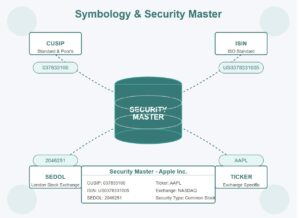Home Education center DTC Options for Direct Indexing
DTC Options for Direct Indexing
Table of Contents:
Direct-to-consumer (DTC) direct indexing platforms offer retail investors the ability to own individual securities that replicate a chosen index. This enables customization, tax benefits, and greater transparency. Below are some notable providers, along with their pros and cons.
Notable DTC Providers
– Fidelity Go
Fidelity’s direct indexing service allows investors to replicate an index via individual stocks, incorporating:
- Tax-Loss Harvesting: Helps offset gains through harvested losses.
- Portfolio Customization: Options to tailor holdings to personal preferences.
– Wealthfront
Wealthfront’s Stock-level Tax-Loss Harvesting automatically identifies and harvests losses on specific stocks, aiming to improve after-tax returns for investors.
– Schwab Personalized Indexing
Charles Schwab offers a personalized solution that includes:
- ESG Preferences: Integrate socially responsible investing criteria.
- Tax Optimization: Strategically harvest losses to reduce taxable gains.
– Frec
Frec focuses on low-cost direct indexing, emphasizing:
- Tax Efficiency: Strategies designed to enhance after-tax returns.
- Portfolio Customization: Tools for creating tailored investment approaches.
– Parametric
Parametric provides customization, tax management, and ESG integration, catering to investors seeking personalized direct indexing solutions.
Benefits of DTC Direct Indexing
- Customization: Align portfolios with personal values, goals, or ESG considerations.
- Tax Optimization: Own individual securities, facilitating tax-loss harvesting and potentially higher after-tax returns.
- Transparency: Greater visibility and control over individual holdings.
- Cost Efficiency: Certain platforms offer competitive fees, expanding accessibility.
Disadvantages of DTC Direct Indexing
- Complexity: Managing individual securities can be more involved than holding a single fund or ETF.
- Higher Minimums: Some services require substantial initial investments.
- Administrative Burden: Additional tasks, such as tracking multiple positions and tax implications.
- Potential Costs: While some platforms are cost-effective, others may charge higher fees than traditional index funds or ETFs.
When evaluating a DTC direct indexing platform, consider fees, minimum investment thresholds, available customization features, and the level of support. Ensuring these factors match your objectives and capabilities is crucial for a positive investing experience.
Related Pages
Offer personalized experiences for every client at scale




